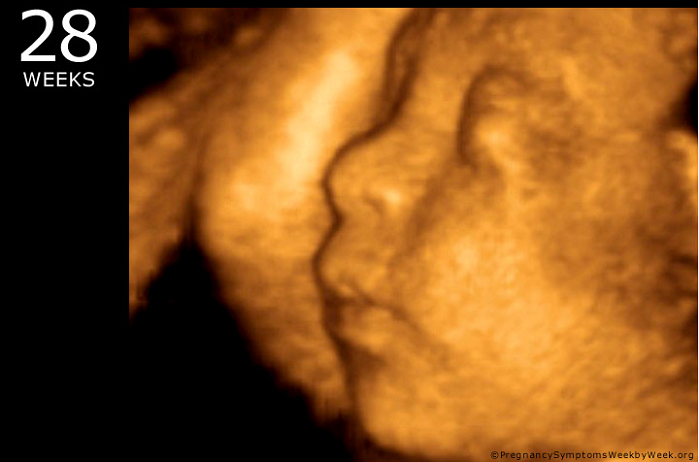The full Ohio legislature passed a bill Wednesday to protect unborn babies once their heartbeats are detectable, moving it to the governor’s office for final approval.
House lawmakers voted 56-39 to approve the pro-life bill, amid interruptions by pro-abortion protesters. Statehouse News reports abortion activists could be heard throughout the session shouting and chanting.
Quickly afterward, the state Senate approved the final version of the bill in a 18-13 vote, the Dayton Daily News reports. The Senate passed the bill in March; however, the bill had to return to the Senate because the House amended it to include stiffer penalties for abortionists who violate the measure.
Gov. Mike DeWine supports the legislation. He is expected to sign it soon.
State Senate Bill 23 would prohibit abortions after an unborn baby’s heartbeat is detectable, about six weeks of pregnancy, in Ohio. Because many women do not even know they are pregnant at this early stage, the legislation could protect almost all unborn babies in Ohio if it goes into effect.
“A baby with a beating heart in the womb deserves the opportunity of being born,” said state Rep. Niraj Antani, in a statement. “As a co-sponsor of the Heartbeat Bill since the moment I was elected, today’s vote will save countless lives. It’s time to end abortion in Ohio.”
The Columbus Dispatch reports abortion activists protested the bill in force Wednesday, and shouted in protest immediately after the House vote. Some abortion activists in the gallery also unfurled a banner that read, “This is not a house of worship!”
NARAL Pro-Choice Ohio Executive Director Kellie Copeland promised to fight the legislation, and claimed the bill is out of touch with most voters.
“It is the act of the minority which abused their authority to gerrymander Ohio’s legislative districts to give them the power to force their out-of-touch ideology on our state,” Copeland said. “We will work day and night to upend this attack on democracy to ensure that Ohio will once again have fair elections that result in elected officials that share our values and support reproductive freedom.”
Click Like if you are pro-life to like the LifeNews Facebook page and receive the latest pro-life news.
But Aaron Baer, president of Citizens for Community Values, said Ohio voters repeatedly and consistently have supported pro-life candidates.
“Ohio voters have continued to send pro-life champions to the General Assembly, and today, we witnessed this hard work pay off,” Baer said, according to the report.
Polls back up Baer’s comments. Consistently, Gallup and other polling groups have found that most Americans support legislation limiting the killing of unborn babies in abortions.
Mike Gonidakis, president of Ohio Right to Life, praised lawmakers for making it a priority to protect unborn babies’ right to life.
“The Heartbeat Bill is the next incremental step in our strategy to overturn Roe v. Wade,” Gonidakis said. “While other states embrace radical legislation to legalize abortion on demand through the ninth month of pregnancy, Ohio has drawn a line and continues to advance protections for unborn babies.”
State lawmakers came close to passing similar pro-life legislation in 2016 and 2018, but then-Gov. John Kasich vetoed both bills.
If enacted, the bill could save thousands of unborn babies’ lives. The Ohio Department of Health reported 20,893 abortions in 2017 in the state.
However, NARAL, Planned Parenthood and other pro-abortion groups oppose the heartbeat bill. They are expected to sue the state if it becomes law.
DeWine acknowledged the possibility of a lawsuit in January, but said they will fight for life anyway.
“Ultimately, this will work its way up to the United States Supreme Court. And they’ll make that decision,” he said.
This year, pro-life lawmakers have introduced a number of heartbeat bills including in Florida, Georgia, Kentucky, Mississippi, Missouri, Ohio, Tennessee and Texas.
Some pro-lifers have renewed hope that the new conservative-majority U.S. Supreme Court will uphold an abortion ban and overturn Roe v. Wade. Others, however, are hesitant because of concerns about losing the court battle and being forced to reimburse pro-abortion groups for their legal fees.
Recently, a federal judge blocked Kentucky’s new heartbeat bill.
The Supreme Court took away the states’ ability to protect unborn babies from abortion under Roe, and instead allowed abortion on demand through all nine months of pregnancy. Roe made the United States one of only seven countries in the world that allows elective abortions after 20 weeks. There is more hope that the new conservative-majority U.S. Supreme Court may consider overturning Roe, but it is difficult to say if it would for certain – especially after Chief Justice John Roberts recently sided with the liberal justices on an abortion case.








